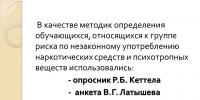What information corresponds to the contents of the winter of meerkas. Analysis of Ivan Surikov’s poem “Winter. Analysis of the poem "Winter"
Goals: introduce students to I. Surikov’s poem “Winter”;
develop the skill of correct expressive reading, the ability to analyze a poem;
teach understanding of poetic speech, correct reading of poetry; develop memory, speech, thinking.
Planned results: students should be able to read poems, conveying the poet’s mood using intonation; distinguish between poetic and prose texts; observe the life of words in a literary text, explain interesting expressions in a lyrical text; observe comparison as a means of creating a picture of nature in a lyric poem; find rhyming words.
Equipment : cards (text of speech warm-up, tasks); collections of poems by I. Surikov, his portrait, audio recording.
During the classes
I.Organizing time
II.Speech warm-up
Smart owls
Owls at the owl
Smart heads:
For every owl's advice
They clap their eyes in response.
I. Kotlyar
Find words with the same root. (Owls, sovushki, sovushkin.)
Read with an intonation of surprise (also: with a questioning intonation, angrily, joyfully).
III. Checking homework
Check the plan for I. Surikov’s poem “Childhood”, read the episodes you like.
IV.Introduction to the topic.
Now I will read you another poem by Ivan Surikov.
The sun is shining brightly,
There's warmth in the air
And wherever you look,
Everything around is light,
The meadow is colorful
Bright flowers;
Covered in gold
Dark sheets
The forest sleeps:
Not a sound
The leaf doesn't rustle
Only a lark
There's a ringing in the air,
Let it wave sometimes
Bird under a bush
Yes, buzzing, it will curl
Bee over a flower
Yes golden winged
The beetle will only rustle, -
And again everything is quiet,
Everything around is silent.
Good!.. And if only
The pond did not call
It would be a long time in the spring
I stood in the field.
Did you like the poem? Are you feeling warm? Surikov wrote about late spring. If you would like to read his other poems, find them in the library or at home. Be sure to read it.
V.Physical education minute
We're a little tired
Let's rest for a minute.
Turn, tilt, jump,
Come on, smile, my friend.
Jump again: one, 2, 3!
Look at your neighbor
Hands up and then down
And sit down at your desk again.
VI.Preparation for the perception of the poem.
1. Today we will get acquainted with I. Surikov’s poem “Winter,” but first let’s look at the words that will appear in the text and explain their meaning.
Veil, peasant, cold, hut.
2.Reading of a poem by the teacher.
3. Work on the analysis of the poem.
Memo for analysis.
What kind of mood do you think the author was in when he wrote the poem?
What do you think was the inspiration for this poem?
Which lines contain the main idea of the poem?
Which lines did you find most imaginative?
Which rhymes seemed the most unusual?
List the most striking comparisons in the poem. What is their role?
Under what circumstances do you think you could remember the lines of this poem?
Read how the peasant prepared to face the winter.
Why does the poet call the sleigh - sanishki?
What intonation corresponds to the content of the poem: calm, sad, joyful? Pass it on during expressive reading.
4. Expressive reading of a poem
5. Comparison in a poem
What does the poet compare the field and forest covered with the first snow to? What does such a comparison give us?
Let me remind you that in order to convey their feelings, authors use various techniques:personification, metaphors, epithets.
Personification (personify ) - to express, to represent in the image of a living being.
Metaphor - figure of speech: the use of words and expressions in a figurative sense based on analogy, similarity, comparison.
Epithet - figurative, artistic definition (for example, constant epithets: blue sea, golden curls).
Find personifications, metaphors, epithets in the poems you read.
VII. Reflection
Listening to P. Tchaikovsky’s composition “The Seasons. Winter".
VIII.Summing up the lesson, grading.
Homework.
Prepare an expressive reading of the poem “Winter”.
Goals: introduce students to I. Surikov’s poem “Winter”; teach understanding of poetic speech, correct reading of poetry; develop memory, speech, thinking.
Planned results: students should be able to read poems, conveying the poet’s mood using intonation; distinguish between poetic and prose texts; observe the life of words in a literary text, explain interesting expressions in a lyrical text; observe comparison as a means of creating a picture of nature in a lyric poem; find rhyming words.
Equipment: cards (text of speech warm-up, tasks); collections of poems by I. Surikov, his portrait.
During the classes
I. Organizational moment
II. Speech warm-up
Smart owls
Owls at the owl
Smart heads:
For every owl's advice
They clap their eyes in response.
I. Kotlyar
Read it in a buzzing manner.
Find words with the same root. (Owls, owls, owls.)
Which word cannot be classified as a group of words with the root -sov-? (Advice.)
- Read with an intonation of surprise (also: with a questioning intonation, angrily, joyfully).
Now read it expressively.
III. Checking homework
Reading a passage by heart. Show illustrations.
IV. Introduction to the topic
Now I will read you another poem by Ivan Surikov.
The sun is shining brightly,
There's warmth in the air
And wherever you look,
Everything around is light,
The meadow is colorful
Bright flowers;
Covered in gold
Dark sheets
The forest sleeps:
Not a sound -
The leaf doesn't rustle
Only a lark
There's a ringing in the air,
Let it wave sometimes
Bird under a bush
Yes, buzzing, it will curl
Bee over a flower
Yes golden winged
The beetle will only rustle, -
And again everything is quiet,
Everything around is silent.
Good!.. And if only
The pond did not call
It would be a long time in the spring
I stood in the field.
Did you like the poem? Are you feeling warm? I wanted to show you how Surikov wrote about late spring. If you would like to read his other poems, find them in the library or at home. Be sure to read it.
V. Physical education minute
Are you probably tired?
Well, then everyone stood up together.
They stretched their necks together
And, like geese, they hissed.
They hissed and were silent
And, like bunnies, they jumped.
Let's gallop, gallop
And they disappeared behind a bush.
VI. Continuation of work on the topic of the lesson
Reading the poem "Winter"
So we are back in winter. Open with. 76 textbook. Read the title of the poem. ("Winter".)
- Who wrote it? (Ivan Zakharovich Surikov.)
Let's get to know him. (The teacher reads and the students follow the textbooks.)
What feelings did you experience while reading the poem? (Feeling of peace, joy that winter has come...)
- What words help you understand that winter has come? (White snow, fluffy / Whirls in the air... And in the morning with snow / The field turned white... Now the frosts have come - / And winter has come.)
- How do you understand the word “veil”? In what sense is it used here?
Veil- a continuous cover, something that covers, envelops on all sides (initially - a piece of cloth, something that is swaddled in).
Has anyone been waiting for winter to come? Who? (Yes, nature and people were waiting for the onset of winter.)
(Children read passages to confirm their answer.)
Read how the peasant prepared to face the winter. (For a long time now the peasant / Was waiting for winter and cold, / And he covered the hut with straw / He covered the outside.)
- Why does the poet call the sleigh - sanishki? (Probably because they are small, or maybe because they are already old.)
What intonation corresponds to the content of the poem: calm, sad, joyful? Pass it on during expressive reading.
Expressive reading of a poem
Comparison in a poem
To what does the poet compare the field and forest covered with the first snow? What does such a comparison give us? (Children's answers.)
Let me remind you that in order to convey their feelings, authors use various techniques: personification, metaphors, epithets.
Personification (personify)- express, imagine in the image of a living being.
Metaphor- figure of speech: the use of words and expressions in a figurative sense based on analogy, similarity, comparison.
Epithet- figurative, artistic definition (for example, constant epithets: blue sea, golden curls).
Find personifications, metaphors, epithets in the poems you read.
VII. Reflection
Ivan Zakharovich Surikov (March 25, 1841) - April 24, 1880) - Russian self-taught poet, representative of the “peasant” trend in Russian literature. Author of the textbook poem "Childhood". Another of his poems, “In the Steppe,” in folk adaptation became the most popular song “Steppe and steppe all around.” Based on his poems, P. I. Tchaikovsky wrote the romance “I was in the field and not a grass was there.”

Winter
White snow, fluffy
Spinning in the air
And the ground is quiet
Falls, lies down.
And in the morning snow
The field turned white
Like a veil
Everything dressed him.
Dark forest with a hat
Covered up weird
And fell asleep under her
Strong, unstoppable...
God's days are short
The sun shines little
Here come the frosts -
And winter has come.
Laborer-peasant
He pulled out the sleigh,
Snowy mountains
The kids are building.
I've been a peasant for a long time
I was waiting for winter and cold,
And a hut with straw
He covered outside.
So that the wind blows into the hut
Didn't get through the cracks
They wouldn't blow snow
Blizzards and blizzards.
He is now at peace -
Everything is covered all around,
And he's not afraid
Angry frost, angry.
In Russian literature of the 19th and 20th centuries, there is such a direction as peasant poetry, the prominent representatives of which are Sergei Yesenin and Nikolai Nekrasov. Among the authors who glorified rural life in their works is Ivan Surikov, whose name has been undeservedly forgotten these days. The creative heritage of this poet, who was born into the family of a serf peasant, is small, but many of his works are still heard by readers, as they are distinguished by the simplicity of their style, special melody and amazing brightness of images.
Among them, it is worth noting the poem “Winter,” written in 1880, shortly before the death of Surikov, who died in poverty, but until the very last moment he did not lose the ability to admire the world around him and found it perfect even despite what fate did not show to this author special favor. However, the poet never complained about life and was convinced that he had a lucky lot - to be a poet.
The poem “Winter” belongs to the category of landscape lyrics, and its first lines are dedicated to snowfall, which covers the earth with a white and fluffy blanket, transforming the world, making it cleaner and brighter. These lines emanate calm and tranquility, as well as anticipation of the holiday, which is sure to come, if only because winter is coming into its own. The poet describes her arrival very simply and laconically - “here the frosts came - and winter has come.” However, this simple phrase contains the philosophical wisdom of existence, the meaning of which boils down to the fact that we all obey the laws of nature. Therefore, any changes in the world around us should be perceived with joy and enjoy every moment of life, which is filled with amazing charm for those who know how to appreciate simple human joys.
Describing the life of the peasants, the poet notes that on a sunny and frosty winter day they still have enough worries. You need to harness the sleigh and go for firewood, without which it is impossible to survive the cold. At the same time, the villager prepares for winter very thoroughly and in advance; he has long covered the outside of the hut with straw to protect his home from the cold. But in the snowy winter, children have nothing but freedom, and in almost every village “children are building snow mountains.”
Simple rural life is described in this work with restraint and unpretentiousness. The main thing for peasants is to take care of their home, stock up on firewood and food, hay for livestock and warm clothes. This time of year is quite calm for rural residents, and they have time to pay attention to their meager farming and prepare for the upcoming sowing season, on which the well-being of the whole family depends. However, winter, even for a villager, is not without romance. And Ivan Surikov, who spent most of his life in the village, never ceases to be amazed at the beauty of the “dark forest”, which overnight acquired a luxurious and lush cap of snow, white fields and short days, which are replaced by long winter evenings filled with special charm. Only a truly gifted person who knows how to appreciate beauty and selflessly loves his native nature, appreciates peasant life and has a very subtle poetic nature can write so simply and artlessly about complex things. Therefore, it is not surprising that Ivan Surikov is considered one of the brightest and most original poets of the Russian village, who was able to breathe romance into the usual way of rural life and present it in such a way that every reader would want to slide down a high snowy mountain on the outskirts of the village or wander through a sleeping forest , listening to the creaking of snowdrifts and breathing in the frosty, tart air.
Help me make a written analysis of the poem for the poem by I. Z. Surikov winter
- The mood at the beginning of the poem is joyful, and then notes of sadness appear. The calm, sad intonation corresponds to the content of the poem. Nature and people were waiting for the onset of winter. The entire poem can be divided into two parts. The first part reveals the relationship between winter and nature, and in the second, winter and man. For nature, winter is the time of year for which it prepares. A person also waits for winter, insulates his home, covering it from the outside in order to escape the evil and angry frost. The peasant was preparing to face the winter. For a long time now the peasant has been waiting for winter and cold, And he covered the hut with straw from the outside. So that the wind does not penetrate into the hut through the cracks, snow does not blow into the hut, blizzards and blizzards. Epithets make our speech bright, expressive, and accurate. There is: metaphor,
comparison, personification. 1. comparisons: The field turned white, as if everything was covered with a shroud... The dark forest, which was covered with a wonderful cap of Snow, like a cap on the trees. 2. Metaphor and personification: The forest fell asleep soundly, the frosts came... Blizzards and blizzards would not have blown the snow. 3. Epithets - fluffy snow, angry frost, angry, snowy mountains. - The mood at the beginning of the poem is joyful, and then notes of sadness appear. The calm, sad intonation corresponds to the content of the poem. Nature and people were waiting for the onset of winter. The entire poem can be divided into two parts. The first part reveals the relationship between winter and nature, and in the second, winter and man. For nature, winter is the time of year for which it prepares. A person also waits for winter, insulates his home, covering it from the outside in order to escape the evil and angry frost. The peasant was preparing to face the winter. For a long time now the peasant has been waiting for winter and cold, And he covered the hut with straw from the outside. So that the wind does not penetrate into the hut through the cracks, snow does not blow into the hut, blizzards and blizzards. Epithets make our speech bright, expressive, and accurate. There is: metaphor,
comparison, personification. 1. comparisons: The field turned white, as if everything was covered with a shroud... The dark forest, which was covered with a wonderful cap of Snow, like a cap on the trees. 2. Metaphor and personification: The forest fell asleep soundly, the frosts came... Blizzards and blizzards would not have blown the snow. 3. Epithets - fluffy snow, angry frost, angry, snowy mountains. - 4 Blagiators gathered together. you can't think of anything on your own
- your analysis of the poem is beautiful
- The mood at the beginning of the poem is joyful, and then notes of sadness appear. The calm, sad intonation corresponds to the content of the poem. Nature and people were waiting for the onset of winter. The entire poem can be divided into two parts. The first part reveals the relationship between winter and nature, and in the second, winter and man. For nature, winter is the time of year for which it prepares. A person also waits for winter, insulates his home, covering it from the outside in order to escape the evil and angry frost. The peasant was preparing to face the winter. For a long time now the peasant has been waiting for winter and cold, And he covered the hut with straw from the outside. So that the wind does not penetrate into the hut through the cracks, snow does not blow into the hut, blizzards and blizzards. Epithets make our speech bright, expressive, and accurate. There is: metaphor,
comparison, personification. 1. comparisons: The field turned white, as if everything was covered with a shroud... The dark forest, which was covered with a wonderful cap of Snow, like a cap on the trees. 2. Metaphor and personification: The forest fell asleep soundly, the frosts came... Blizzards and blizzards would not have blown the snow. 3. Epithets - fluffy snow, angry frost, angry, snowy mountains. - The mood at the beginning of the poem is joyful, and then notes of sadness appear. The calm, sad intonation corresponds to the content of the poem. Nature and people were waiting for the onset of winter. The entire poem can be divided into two parts. The first part reveals the relationship between winter and nature, and in the second, winter and man. For nature, winter is the time of year for which it prepares. A person also waits for winter, insulates his home, covering it from the outside in order to escape the evil and angry frost. The peasant was preparing to face the winter. For a long time now the peasant has been waiting for winter and cold, And he covered the hut with straw from the outside. So that the wind does not penetrate into the hut through the cracks, snow does not blow into the hut, blizzards and blizzards. Epithets make our speech bright, expressive, and accurate. There is: metaphor,
comparison, personification. 1. comparisons: The field turned white, as if everything was covered with a shroud... The dark forest, which was covered with a wonderful cap of Snow, like a cap on the trees. 2.Metaphor and personification: The forest fell asleep soundly, the frosts came... Blizzards and blizzards would not blow snow. 3. Epithets - fluffy snow, angry frost, angry, snowy mountains. - 2 plagiarisms like that
- The mood at the beginning of the poem is joyful, and then notes of sadness appear. The calm, sad intonation corresponds to the content of the poem. Nature and people were waiting for the onset of winter. The entire poem can be divided into two parts. The first part reveals the relationship between winter and nature, and in the second, winter and man. For nature, winter is the time of year for which it prepares. A person also waits for winter, insulates his home, covering it from the outside in order to escape the evil and angry frost. The peasant was preparing to face the winter. For a long time now the peasant has been waiting for winter and cold, And he covered the hut with straw from the outside. So that the wind does not penetrate into the hut through the cracks, snow does not blow into the hut, blizzards and blizzards. Epithets make our speech bright, expressive, and accurate. There is: metaphor,
comparison, personification. 1. comparisons: The field turned white, as if everything was covered with a shroud... The dark forest, which was covered with a wonderful cap of Snow, like a cap on the trees. 2. Metaphor and personification: The forest fell asleep soundly, the frosts came... Blizzards and blizzards would not have blown the snow. 3. Epithets - fluffy snow, angry frost, angry, snowy mountains.
(Illustration: Gennady Tselishchev)
Analysis of the poem "Winter"
Ivan Surikov was born and raised in a serf family, he lived hard and died in deep poverty. The lyrics of this wonderful poet, left to descendants, reveal the amazing talent and love of life of a man who suffered a lot in his life.
Ivan Surikov’s poem “Winter” is a vivid example of amazing poetic talent. It belongs to the genre of landscape poetry and reflects the amazing ability of a person deprived by life to beautifully and warmly admire his native nature.
We see in these lines a real poet, bright and cheerful. His speech is smooth and melodic, filled with sincere kindness and admiration for the picture he sees. The author tenderly compares the snow cover with a warm robe that covered the field with a “veil” and a “wonderful” cap - a “dark forest” that fell asleep calmed down.
Everything is filled with deep human meaning, winter has fully taken its place, and we need to come to terms with it. That is why the main idea is stated briefly: “the frosts have arrived - and winter has come.” This has been the case from time immemorial, this is the essence of life and change.
The poet lovingly describes all the efforts of the peasant preparing for winter. A person close to nature knows and understands it, he accepts a new day with joy, because he knows how to appreciate every glimpse of happiness. And happiness is harmony with nature.
The subtle poetic nature of a peasant man perceives the world around him especially sensitively, this is felt in every line. The village man is unhurried, wise and hardworking. Understanding the harsh nature of winter, he does not complain about it, but prepares to live with it in peace and love.
Only by endlessly adoring this village life and feeling close to the natural world, the poet was able to find calm, succinct phrases describing the coming of winter. At the same time, Surikov’s speech is romantic and sublime.
The last stanza of the poem evokes fairy-tale motifs, here there is “evil frost, angry” as in folk tales, and “blizzards and blizzards” as living characters. Everything is ready for winter, it is cold, but also beautiful, and with it comes peasant rest.




